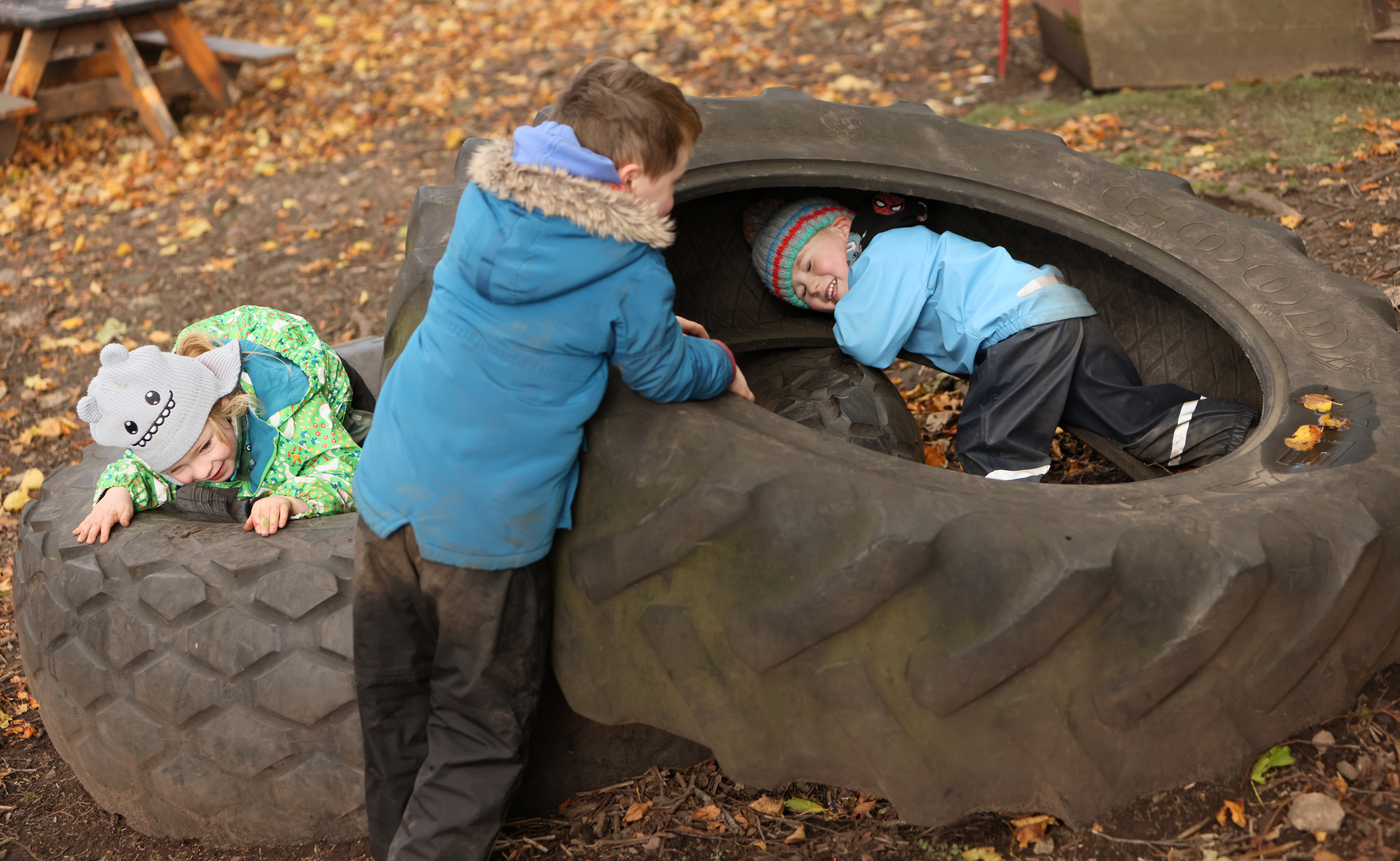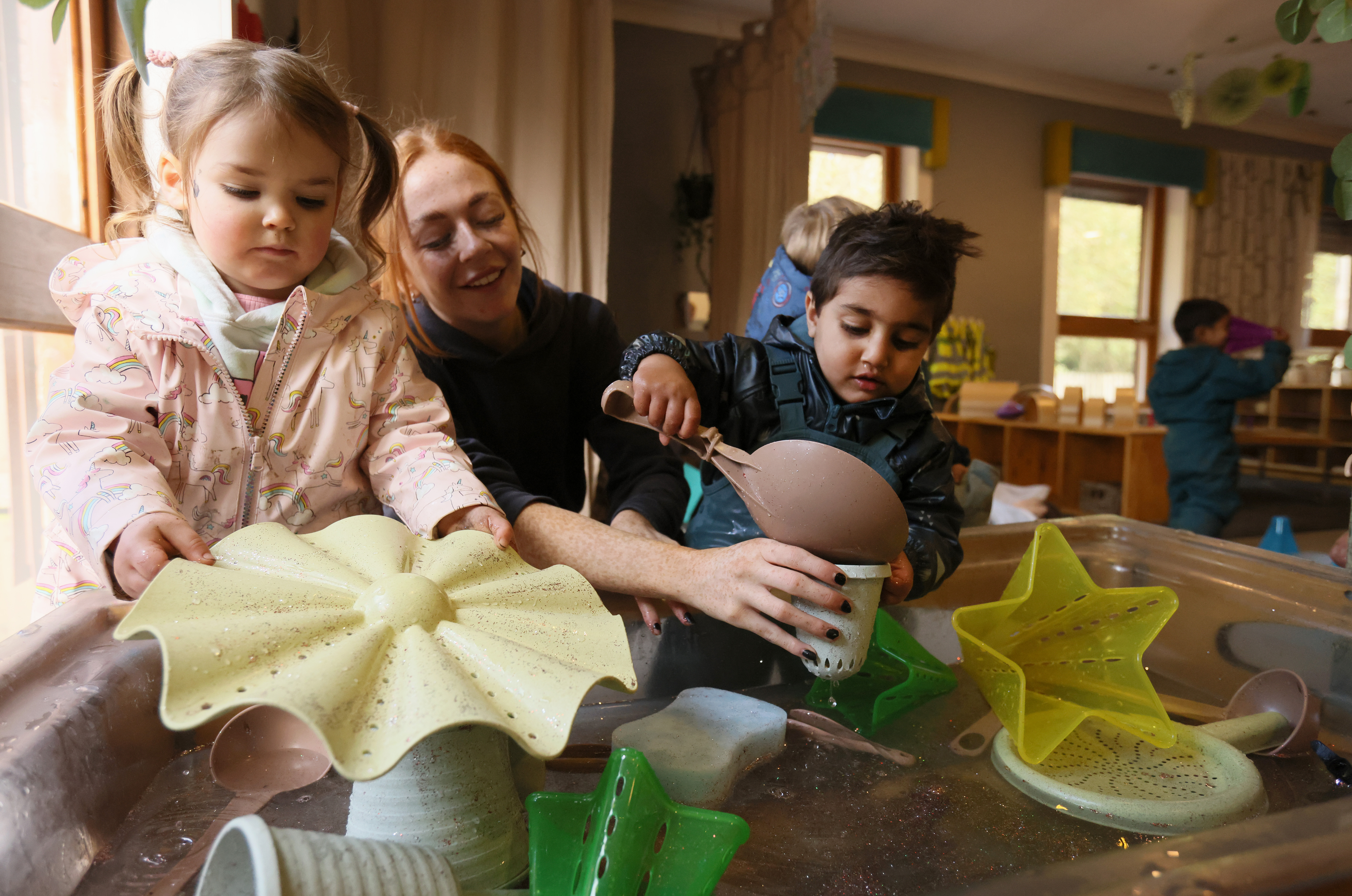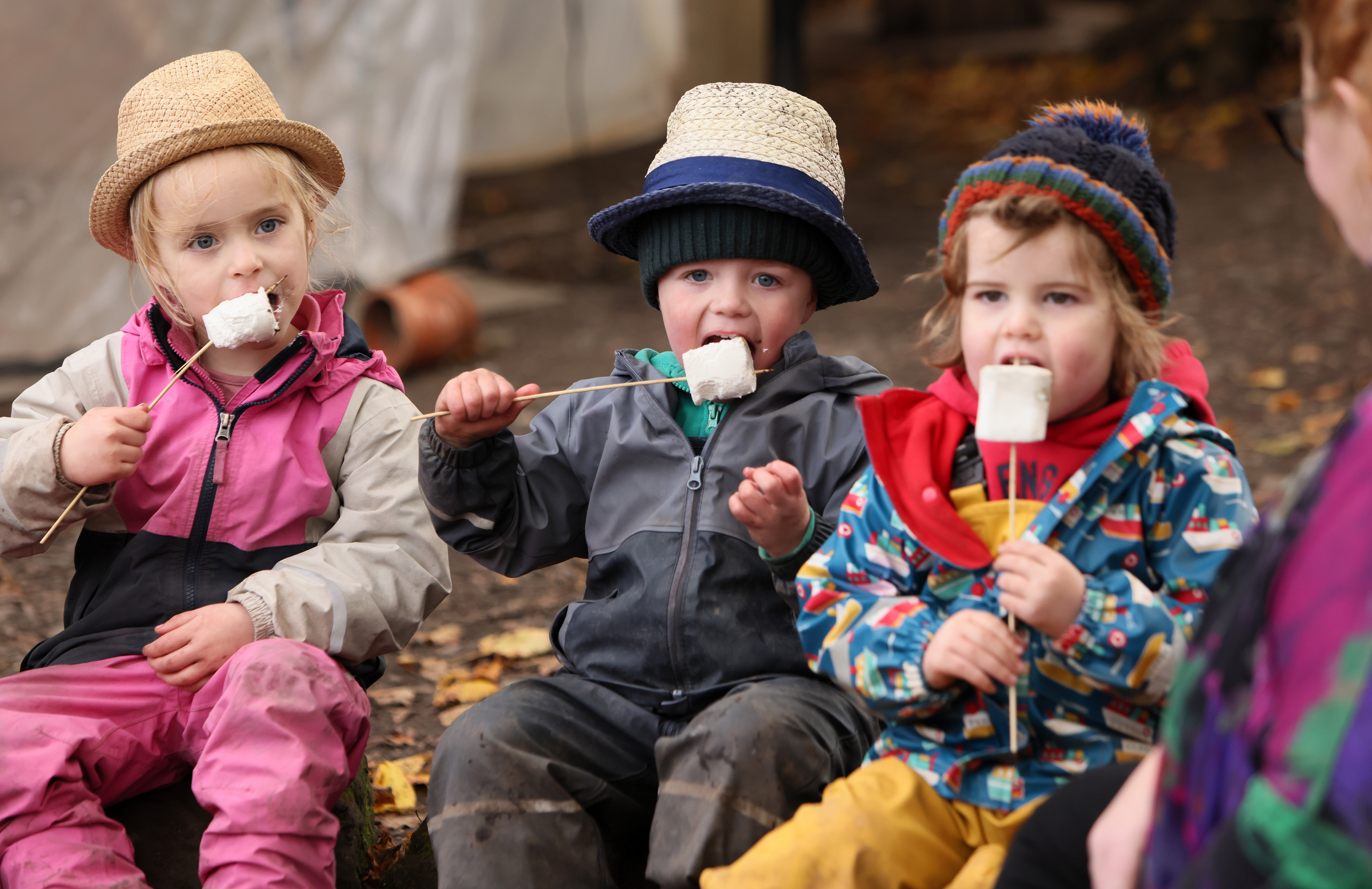
Kirktonholme Childcare comprises ten nurseries and two Forest Schools operating across the central belt of Scotland. Running for over 25 years, the organisation has won awards and worked in partnership with the Scottish government to develop outdoor learning guidelines.
More recently, it formed a partnership with Alice Sharp, an early years consultant and 2022 Nursery World Business Development award winner for her digital training programme ‘Adventures with Alice’, which translates child development research into practice.
Sharp has worked with Kirktonholme for 20 years and now has an office situated in the group's new Broomhill nursery where she works on action research and staff development, having sold her training business, ‘experiential play’ to the company. Karen Flynn, area manager, says they felt that Sharp's child-centred approach fitted well with the group's values.
The eco-nursery at Broomhill, which opened last year, will offer seminars, masterclasses and training days. A new staff team settled in 150 children during the first six months, using six core strengths such as attachment and attunement as a guide to forming an ethos.
‘I’ve never been in a nursery before where there is a whole staff team getting paid for weeks without any children,’ says Sharp. ‘Karen used those core strengths to reflect on her staff as well as her children. She made sure staff were attached, showed respect and tolerance. It's very rare you get that as a staff member before you see your children coming through the door.’

CORE STRENGTHS
The six core strengths (see box) are a theoretical framework to build shared values and a vision for the staff team. Leadership staff attended a four-day pedagogical residential as a springboard for working together.
Sharp first came across the core strengths when she heard their author, American neuroscientist Bruce Perry, at a conference. She felt they built upon the important work Scotland has been doing on adverse childhood experiences (ACEs) and how these impact children's life course. Dr Perry's core strengths aim to build a healthy foundation which both minimises the chances of children becoming violent and reduces the impact of trauma and violence they may have experienced. For Sharp, Dr Perry's research also provides a more contemporary voice than the pioneering childhood theorists whose work doesn’t reflect the modern challenges children face.
‘What we’ve done is made those core strengths tangible. You can see them in the playrooms,’ says Sharp. ‘A lot of the services that I go into are drowning because they’re curriculum focused and not child focused. Yes we’re accountable and we’ve got attainment outcomes and learning intentions and all the rest of it. But at the heart of everything you do has to be the emotional needs and these core strengths… or you’re missing golden opportunities for learning.’
Flynn adds that one way the ethos succeeds in practical terms is enabling the children to settle well.
‘They’re so secure with the environment now, they’re so secure with the people’ says Flynn. ‘This is a second home. Early environments don’t look like nurseries, they look like homes. We’re never happier than when the children are lying about, they’ve kicked their shoes off as they would in their living room. That's when we know we’ve succeeded, because they’re just so secure – now let's take it to the next level.’

LEADERSHIP
‘We are completely immersed in research here… outside my office is a wall with photographs of researchers and their biggest impact or statement, and that was agreed by the staff team who chose who had influenced their practice,’ says Sharp. ‘But I think sometimes the sector hangs itself. I’m absolutely in agreement that we stand on the shoulders of giants but we have to stop looking at dead researchers and theorists because they have no idea of the children and issues of today.’
She adds, ‘The sector, certainly up in Scotland, is encouraged to be a degree-led profession, but there have to be staff members who are really good at play. We should be a degree-led profession, I’m not debating that, but everybody's trying to get a degree. What they need is bigger and broader knowledge, but it doesn’t have to be to that level.’
Flynn agrees. ‘The workforce that we’ve got now, the research sits too high for them. If you hand someone a research paper but they’ve not got the underpinning knowledge, then it's going to end up over their head, or you’re going to overwhelm them. There are huge gaps in child development knowledge and I think that's the crux of the problem.’
By way of an example, she adds, ‘About a year ago I had a member of staff who set up a beautiful tuff tray with a silver tea set and spoons and strainers and lemons and tea bags. The children loved it, but her passing comment to me was “I would love to know what they’re learning and what they’re thinking” and I thought – right, we’ve got a problem.’
Currently, Flynn says she and the other leaders are working hard to get to grips with identifying where the gaps in knowledge of the 240-strong staff team lie. This takes place through questionnaires and conversations with managers. The leadership team then consider how they can meet practitioners’ learning needs, either in-house at Kirktonholme, through Experiential Play training or through training that Alice delivers in person.
Flynn adds they are having a whole staff meeting to plan the leadership programme for the year. ‘We’re going to start with brainstorming people's challenges and what's standing in their way. They will lead it, we’re there to facilitate. I could easily just pull Powerpoints but that's not going to have any impact whatsoever. We will facilitate whatever they need.’

TRANSLATING THEORY
Sharp says this hands-on approach from the leadership team is key. ‘If they’ve got a theoretical framework that's going to be adopted, they need to live and breathe it themselves. There's not very many managers and leaders that do that any more… the manager is sometimes the person with all the knowledge, and they might sit in an office. I see really good managers and leaders but they don’t remember what it's like – they forget about the pedagogy, they forget about the play.’
An example of this is with translating the work of Sandra Duncan, co-author of the book The Honeycomb Hypothesis, which uses the analogy of a bee's acquisition of pollen to explain how a child acquires knowledge, and how to design classroom environments encouraging ‘freedom of flight’.
Sharp and Flynn attended an early childhood conference in Washington, D.C. and were captured by Duncan's hypothesis and her theories on mapping patterns of play and how children learn through movement and open-ended exploration, especially in nature. ‘It's about what our environments look like, and are we meeting the needs of the toddlers and the babies? How are our resources used? They shouldn’t be all around the walls, we should have stations,’ Sharp adds.
It was important to them that this knowledge was cascaded through the staff team, so while Sharp arranged for Duncan to come and visit, Flynn booked 15 staff onto Duncan's training. Sharp also ensures she is having ‘pedagogical dialogue’ with the staff team at Broomhill. Making theoretical knowledge accessible and relevant to staff's everyday practice ‘is something that I’m passionate about and I’m good at doing it because I need to understand something in its simplest form’, she says.
But she feels that it is easy to misinterpret theories and research, and for this reason says practitioners using sources such as Pinterest for activity ideas is a big problem.
‘They see a nice activity, they set it up. It's busy children. But it's not active, it's not thinking. They don’t understand the stages of play, the progression of play and the basics and elements that they really need to get right,’ she says.
BROOMHILL NURSERY FACTS
- Opened in August 2022
- Birth to age five
- Has capacity for 300 children to attend; 131 attending at any one time.
- Alice Sharp works on action research and professional development there from an on-site office once a week
- Kirktonholme nursery group purchased Sharp's qualifications business Experiential Play in January
6 core strengths
Based on his studies of early neglect and trauma's effects on brain growth, neuroscientist Dr Bruce Perry identified six core strengths that promote children's emotional health and resilience:
- Attachment.
- Attunement.
- Affiliation.
- Tolerance.
- Respect.
- Self-regulation.
- FURTHER INFORMATION
- https://attachmentnetwork.ca/wp-content/uploads/2020/08/Six-Core-Strengths-for-Healthy-Child-Development-B.-D.-Perry.pdf
- https://www.wecanandmustdobetter.org/files/7314/2736/9385/Using_a_neurodevelopmental_lens_when_working_with_children.pdf









